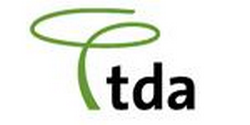Copy of `TDA - Teaching and training glossary`
The wordlist doesn't exist anymore, or, the website doesn't exist anymore. On this page you can find a copy of the original information. The information may have been taken offline because it is outdated.
|
|
|
TDA - Teaching and training glossary
Category: Education > Teaching
Date & country: 15/01/2008, UK
Words: 131
|
PATProfessional Association of Teachers
PEPhysical education
PGCEPostgraduate Certificate of EducationA postgraduate-level teacher training qualification. Find out more about PGCEs
Priority subjectsMathematics, English (including drama), information and communications technology ( ICT), design and technology ( D&T), science, modern languages, Welsh – teachers teaching these subjects qualify for additional financial incentives
PRPPerformance related pay
PSHEPersonal, social and health education
PTAParent-teacher association
Pupil referral unitSchools established and maintained by LEAs to cater for children of compulsory school age who may otherwise not receive suitable education. Their focus is on getting pupils back into a mainstream school
QAFQuality assessment framework
QCAQualifications and Curriculum Authority
QTSQualified teacher statusThe status trainee teachers achieve by meeting all of the required Standards. You must have this qualification to teach in a state-maintained school. Find out more about achieving QTS
RBRecommending bodyA school, local education authority, higher education institution or any other body that can organise an appropriate teacher training plan
RTPRegistered Teacher ProgrammeAn employment-based teacher training programme. Find out more about the RTP
Schools in special measureSchools deemed by Her Majesty's Chief Inspector of Schools to be failing to provide an acceptable standard of education to its pupils
SCITTSchool-centred initial teacher trainingTeacher training provided by schools in partnership with higher education institutions and local education authorities. Find out more about SCITT
SENSpecial educational needs
SENCOSEN coordinatorThe teacher in school with responsibility for the delivery of services for children with special educational needs
SHASecondary Heads AssociationNow known as the Association of School and College Leaders, see ASCL above
Special schoolsState schools in England and Wales provided by local education authorities for certain children with special educational needs
State schoolsOtherwise known as publicly funded schools and attended by over 90 per cent of pupils. Parents do not pay any fees
TATeaching assistant
TDATraining and Development Agency for SchoolsFormerly the Teacher Training Agency. Visit the TDA corporate website for more information about our organisation
TEFLTeaching English as a Foreign Language
TESTimes Educational SupplementA good source of information about teaching job vacancies
TILTeaching Information LineTelephone helpline staffed by specialist consultants who provide advice and information for people interested in a career in teaching
TILETraining to Teach in London Event
TTRSTeacher training recruitment scheme in Wales
UCASUniversities & Colleges Admissions ServiceThe agency responsible for processing applications for undergraduate courses in the UK
Voluntary aided schoolsSchools in England and Wales, maintained by the local authority, for which a foundation (generally religious) appoints most of the governing body
Voluntary controlled schoolSchools in England and Wales, maintained by the local authority, for which a foundation (generally religious) appoints some – but not most – of the governing body
Year 1 to Year 13The way year groups are divided in English schools, from nursery through to sixth form Reception year: 4/5-year-olds; Year 1: 5/6-year-olds; Year 2: 6/7-year-olds; Year 3: 7/8-year-olds; Year 4: 8/9-year-olds; Year 5: 9/10-year-olds; Year 6: 10/11-year-olds; Year 7: 11/12-year-olds; Year 8: 12/13-year-olds; Year 9: 13/14-year-olds; Year 10: 14/15-year-olds; Year 11: 15/16-year-olds; Year 12: 16/17-year-olds; Year 13: 17/18-year-olds.

